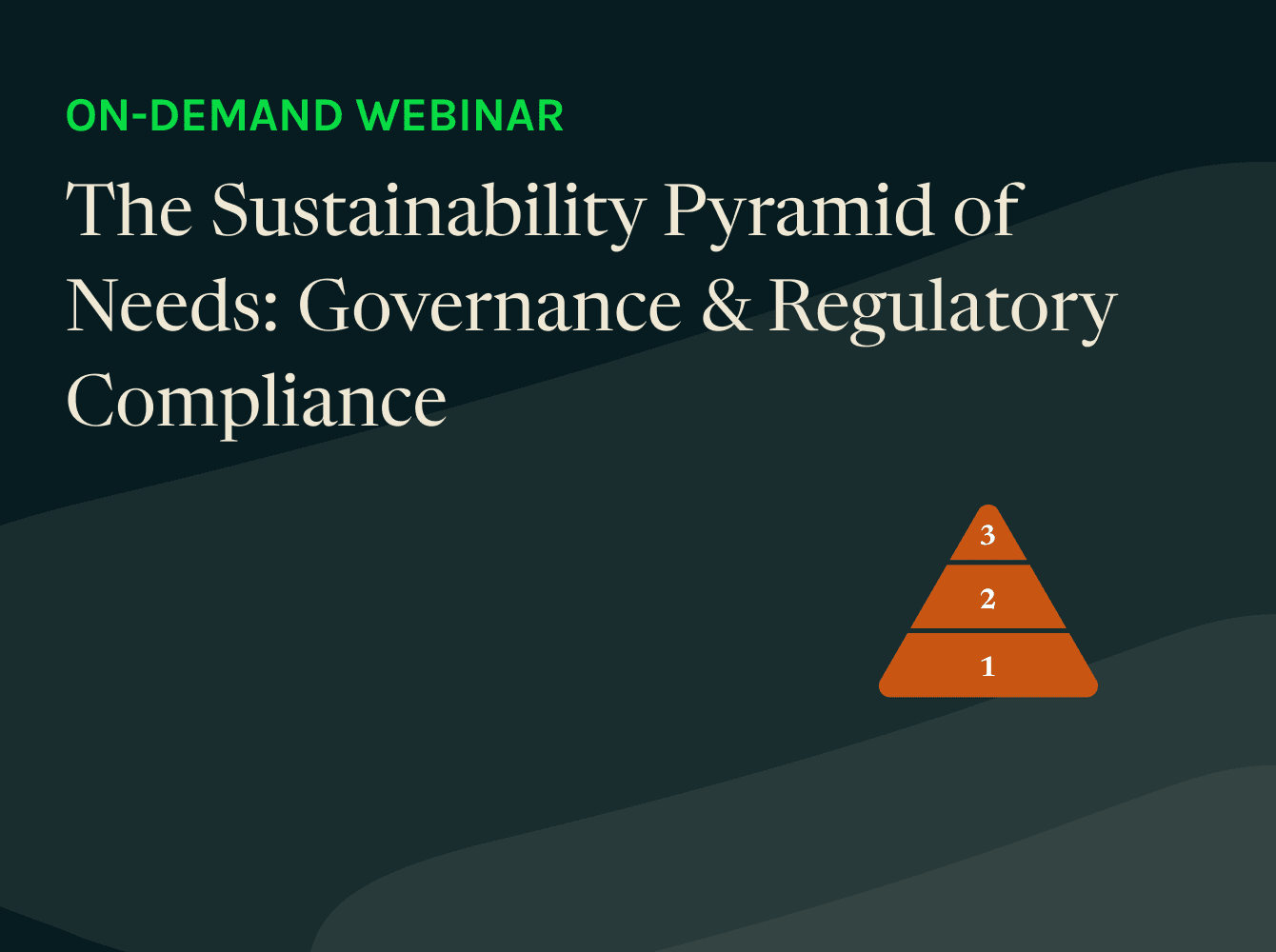The webinar provides a deep dive into understanding the complexities and best practices for sustainability governance and compliance. This session is particularly focused on navigating the Corporate Sustainability Reporting Directive (CSRD) and the concept of double materiality, which are pivotal for organizations aiming to enhance their sustainability reporting and practices.
Key highlights from the webinar include:
-
Introduction to Sustainability Governance: The webinar begins with a discussion on the importance of sustainability governance in the corporate world, highlighting how it guides companies in making decisions that align with sustainability goals.
-
Understanding CSRD and Double Materiality: The session provides a comprehensive overview of the CSRD, explaining its significance and how it affects organizations. It also delves into the concept of double materiality, clarifying its role in sustainability reporting and decision-making processes.
-
Best Practices for Compliance: Experts share insights on best practices for adhering to sustainability governance and compliance requirements, including tips on how to effectively navigate the CSRD and implement double materiality in reporting.
-
Practical Tools and Strategies: The webinar offers practical tools and strategies for organizations to enhance their sustainability governance and compliance frameworks, helping them not only meet regulatory requirements but also improve their overall sustainability performance.
-
Engaging Q&A Session: The webinar concludes with a Q&A session, where participants have the opportunity to ask questions and gain further clarity on the topics discussed, providing a more interactive and engaging learning experience.
This webinar serves as an essential resource for professionals and organizations looking to deepen their understanding of sustainability governance and compliance, particularly in the context of the CSRD and double materiality. It offers valuable insights and practical advice to help companies navigate these complex areas effectively, ultimately contributing to more sustainable and responsible business practices.
{{cta(‘97126063831’)}}





